


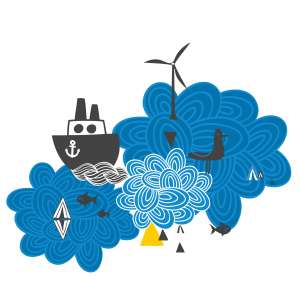
In this session, we share insights from projects in terms of interactions between the coastal and marine environment and the socio-economic system relevant to coastal and marine spatial planning (C/MSP). Focus is on how to develop and integrate economic and social analyses and work practically with multidimensional land-sea interactions in coastal and marine planning at different spatial scales, in line with IOC-UNESCO guidelines and the EU MSP directive and practical requirements. We present experiences from the Pan Baltic Scope project and others from different spatial areas and scales to discuss and address the challenges of linking the sea and society, as well as land and sea.
Welcome to discuss with us and share your own knowledge!
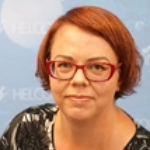
Ms. Ahtiainen (PhD in environmental economics) has long experience related to regional economic and social analyses of the Baltic Sea marine environment, including valuation of ecosystem services and environmental benefits, cost-benefit analysis, economic importance of marine uses, and assessing the sufficiency of measures to achieve environmental objectives.
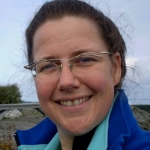
Environmental and social scientist with long experience in research and development of coastal and marine governance, participation and conflict management. Leading the Pan Baltic Scope work package on Land-Sea Interactions. Co-chairing the ICES Working Group on Marine Planning and Coastal Zone Management (WGMPCZM).

Margarita (MSc Spatial Planning) has thorough experience through different projects related to maritime and coastal spatial planning and stakeholder engagement, which enhanced development and approval of Latvian national MSP in 2019. In Pan Baltic Scope she leads the Riga bay case – a cross-border study with the focus on potential connections between land and sea.
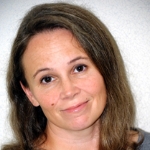
An environmental scientist with 18 years of experience in natural resource conflicts and human-environment interactions. She has led various interdisciplinary research and development projects with the aim to improve collaborative governance.

Marina holds two master degrees in Coastal Management. Her particular area of work is the Adriatic sub-region, including Croatia. In her recent work, she was part of the team developing a methodology for vulnerability/cumulative effect assessment for marine areas. She is involved in a number of projects linking MSP and ICZM. Currently, she is coordinating different activities towards common approach for MSP in the Adriatic sub-region.

Sue Kidd leads the Sea and Society lead group in the Liverpool Institute for Sustainable Coasts and Oceans. Addressing land-sea interactions (LSI) has been a recurring theme throughout her career. Most recently this is reflected in her involvement with LSI studies for the European MSP Platform and ESPON and she will be carrying this forward in forthcoming activities as part of the SIMAtlantic project.
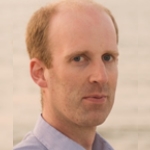
Holger is educated in spatial planning with specialisation on coastal and marine management. He has worked as a scientist on MSP for 11 years and is now responsible for MSP in the territorial waters of Mecklenburg-Vorpommern, Germany.

A spatial planner with broad experience from all levels of planning in Sweden. International and national level through MSP at the Swedish Authority for Marine and Water Management (SwAM) until mid-August, regional level at county administrative board of Gävleborg and local level at Älvkarleby and Gävle municipalities. She was SwAM’s representative in the Finland – Åland – Sweden Case in the Pan Baltic Scope project. Now she is deep diving into offshore windpower.

Ms Pakalniete has considerable experience in developing economic and social analyses to support national and Baltic Sea region marine policies. Her expertise includes socio-economic analyses of the sea use, ecosystem services, policy scenarios and measures. Her ongoing work includes, among others, valuation and spatial assessment of benefits from ecosystem services provided by marine habitats, assessment of welfare impacts of establishing Marine Protected Areas and alternative sea use scenarios to support MSP. She represents Latvia in the HELCOM expert network on economic and social analyses and in the EU Working Group POMESA.
Deployment of green infrastructure in terrestrial as well as marine areas is recognised as one of the key tools for halting the loss of biodiversity and implementing the objectives of EU Biodiversity Strategy 2020. Unlike in the case of terrestrial ecosystems, planning of marine green infrastructure is still a novelty. The Pan Baltic Scope project has taken a challenge to develop a concept for marine green infrastructure and to test it at the Baltic Sea scale. The workshop aims to promote the marine green infrastructure concept, mapping approaches as well as to discuss the opportunities and current limitations for its application in MSP.
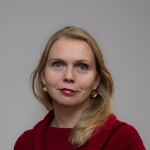
Leading the Pan Baltic Scope work on marine green infrastructure. Also works for the Baltic Environmental Forum – Latvia as environmental expert and project manager with long years of experience in MSP, ecosystem service mapping and nature conservation issues. Anda will introduce to the concept of the marine green infrastructure and the Pan Baltic Scope results of testing it at the Baltic Sea scale.
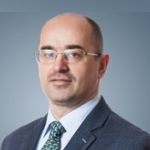
Leading the Pan Baltic Scope work on Essential Fish Habitat mapping. Also works for Institute of Food Safety, Animal Health and Environment BIOR as Head of Fish Resource Research Department. Didzis will present the latest and best available essential fish habitats maps covering whole Baltic Sea produced in close cooperation with HELCOM.

Leading the work on impact assessments including cumulative assessment with Symphony and sustainability appraisal in Swedish national MSP. He has contributed in the development of a Baltic Ecosystem-based MSP approach in many years, including work in projects like Baltic Scope and Pan Baltic Scope. Jan is representing Sweden in the HELCOM/VASAB MSP working group. Jan will present the approach applied in Swedish MSP for addressing the marine green infrastructure.
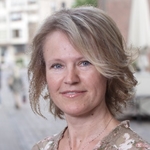
Senior scientist in the Latvian Institute of Aquatic Ecology. Over the last 20 years, Solvita has conducted and managed academic and applied research focusing on the Baltic Sea biodiversity, indicators and assessment, Marine protected areas and ecosystem-based approach in Maritime Spatial Planning. Solvita will present a tailor-made integrated assessment tool, Developed in Bonus BASMATI project, which provides an opportunity for communicating the results of an assessment to non-experts and increasing the practitioners’ understanding and use of the ecosystem service concept in maritime spatial planning in the Latvian case study context.

Oscar is a marine GIS, remote sensing and modelling expert who is currently working on modelling the benthic environment; seabed substrates, morphology, species and habitats. His work results in data and maps for e.g. marine spatial planning and environmental conservation, considering human impact and climate change. The presentation will show the future predicted distribution of some important benthic habitat-forming species, shed some light into the overall predicted future character of the Baltic and sketch some implications for green infrastructure, ecosystem services and environmental conservation.
Baltic Sea Region has a well-established and experienced cross-border collaboration on MSP – HELCOM-VASAB MSP Working Group, joint framework for coherent MSP, new approaches are looked for. Mediterranean Priority Actions Programme/Regional Activity Centre (PAP/RAC) is partner to support Mediterranean countries on their path towards sustainable coastal development, including MSP and blue economy. This workshop will discuss existing crossborder cooperation mechanisms and propose recommendations and key actions to support cross-border governance to be included in the international guidelines on MSP developed by the MSPglobal initiative.
BSR experience
Mediterranean experience
Zeljka Skaricic, PAP/RAC
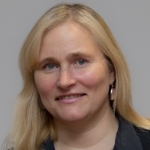
She is a senior environmental expert / project manager in the Baltic Environmental Forum (BEF), having work experience of more than 20 years in the field. Since 2009 she has taken active part in the transboundary projects related to maritime spatial planning in the Baltic Sea region (BaltSeaPlan, PartiSeapate, MARMONI, Land-Sea-Act). In 2015-2016, she led an international team to develop the country-wide Maritime Spatial Plan of Latvian territorial and EEZ waters. Currently, she leads the Assessment of the application of Baltic Sea Common Regional MSP Framework commissioned by the VASAB Secretariat.

Mr Joacim Johannesson works at the Swedish Agency for Marine and Water Management since 2011. Since 2016 he is project coordinator of the national project (MSP 2019) developing proposals for maritime spatial plans for the Swedish marine areas to be submitted to the Government by the end of 2019. He actively participates in the cross-border cooperation on maritime spatial planning (MSP) and is one of the co-chairs of the Joint HELCOM-VASAB Working Group on Maritime Spatial Planning in the Baltic Sea, representing HELCOM.
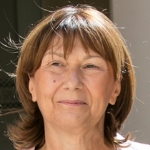
She is specialised in coastal zone management, with long experience in coordinating large Mediterranean projects in the field. Her main responsibility is the implementation of the Protocol on Integrated Coastal Zone Management (ICZM) in the Mediterranean and the related Action Plan adopted and implemented by the Contracting Parties to the Barcelona Convention (21 Mediterranean States and the European Union). Since both documents recognise the intrinsic relationship existing between coastal and marine space and the need to link ICZM and MSP since 2015 she has been involved in initiatives exploring challenges and opportunities of MSP in the Mediterranean basin, in particular with regard to methodologies to apply, governance mechanisms to establish and data bases to create.

Pan Baltic Scope brings together national authorities and regional organizations towards coherent national maritime planning in the Baltic Sea region and enhances the lasting macro-regional mechanisms for cross-border MSP cooperation.
CONTACTS
PROJECT LEADER AND COORDINATOR
Ingela Isaksson
Swedish Agency for Marine and Water Management
E-MAIL ADDRESS:
ingela.isaksson@havochvatten.se
MOBILE PHONE NUMBER:
0046 (0)703 662 529
CONTACTS
COMMUNICATION MANAGER
Liene Strazdina
VASAB Secretariat
E-MAIL ADDRESS:
liene.strazdina@vasab.org
MOBILE PHONE NUMBER:
+371 29 703 572